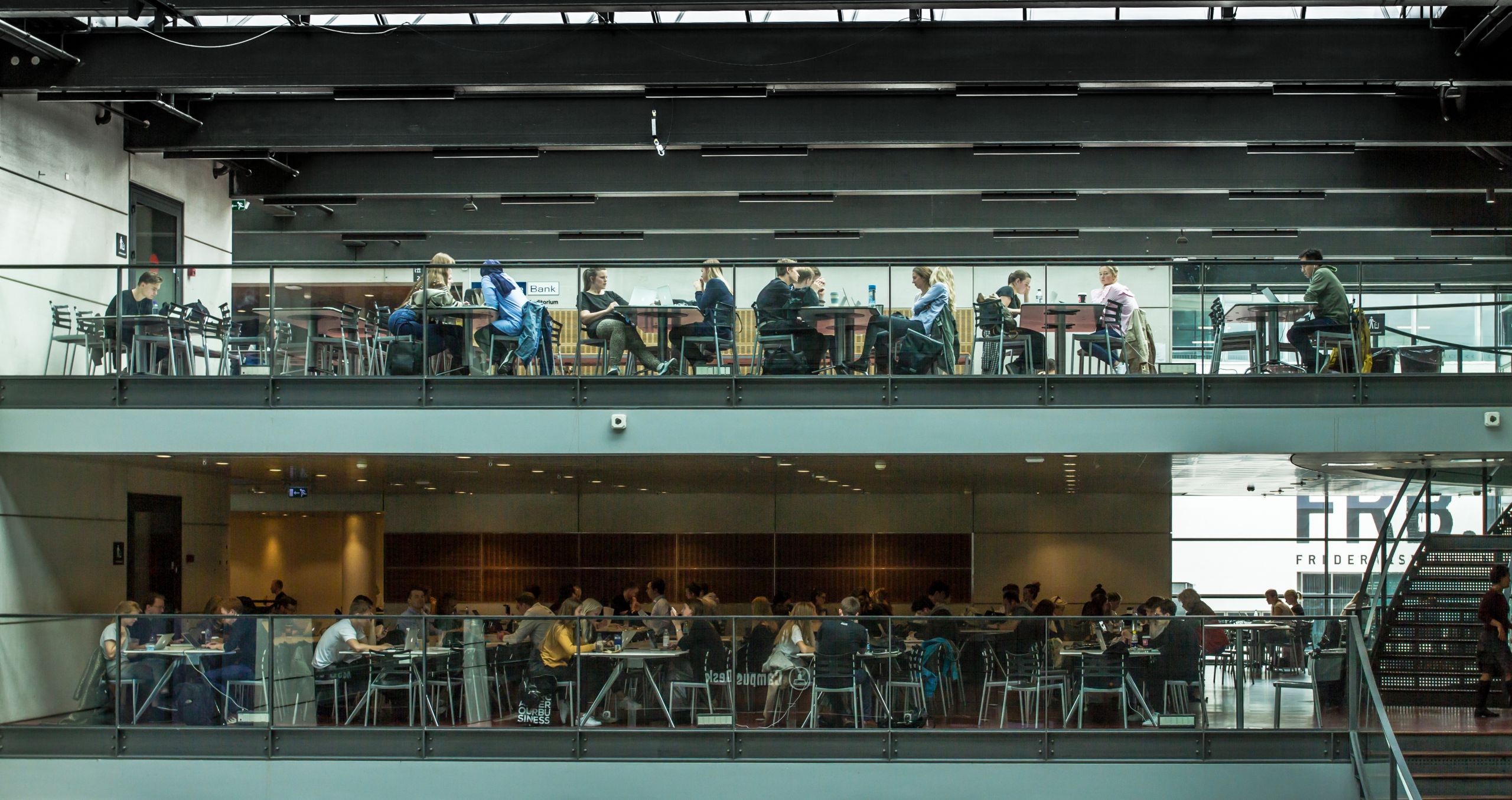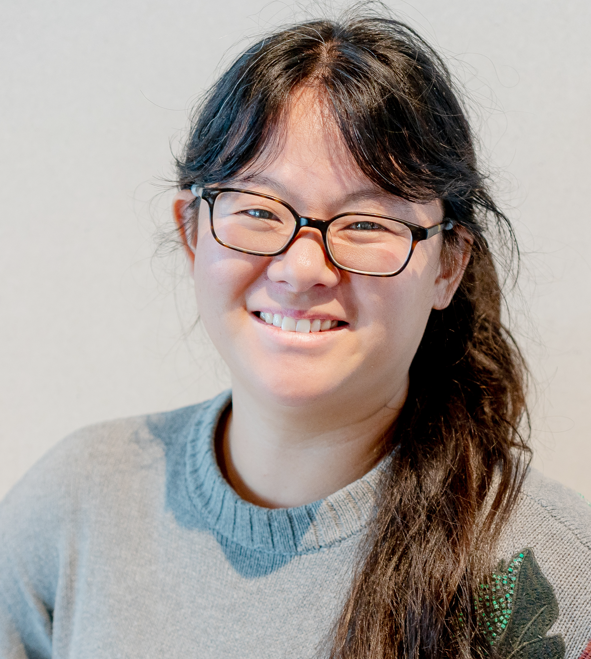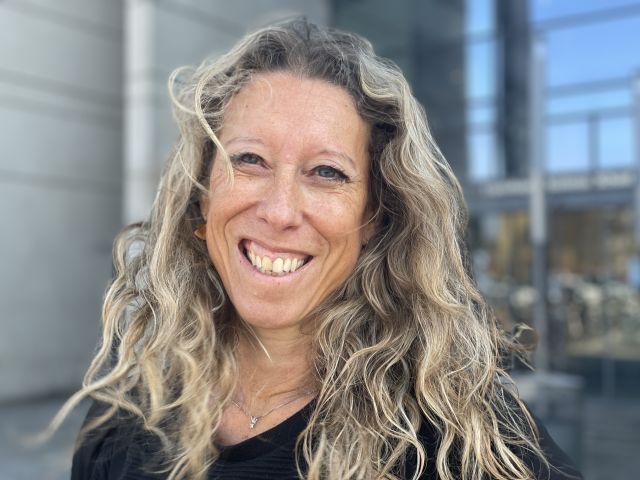Study groups – how to make them work

Photo: Anna Holte
Study groups are an important part of being a student at CBS. They give students a sense of belonging and help more students to finish their degrees. But study groups are also time-consuming and, at times, a battleground for difficult group dynamics. Read on to learn how to find the right members for your group, how to deal with conflicts and resolve them when they occur.
Working in a study group can be one of the most productive and one of the most frustrating experiences. It all depends on the members of your group.
Sometimes you will experience great collaboration with people you have hardly spoken to before, and at other times you will tear your hair out, fight with your best friend over your project and be afraid that your friendship might not survive.
Study groups are an essential part of studying at CBS. One reason is that group work helps students to feel less alone and more motivated, meaning that more students finish their studies.
“We have seen a low drop-out rate at CBS compared to other universities. I believe that is because of the study groups. The more groupwork in a programme, the lower the drop-out rate, in my experience,” explains Jan Molin, professor emeritus and former Dean of Education at the Department of Organization.
Study groups put together by the administration foster more diversity
In all bachelor’s programmes across CBS, study groups are put together by the administration during the first year. And according to Jan Molin, students should highly appreciate this.
“In my experience, groups composed by the administration work better together because you are in a group with people who have different ways of solving projects. This gives a dynamic where the focus is on creating a good project. When we choose friends, we often choose people who are similar, which means that a study group consisting of friends will not be as diverse in terms of opinions as a group composed by the administration,” says Jan Molin.

Third–semester student Matyas Gelle, who is studying for a bachelor’s degree in Business Administration and Sociology, agrees:
“I find that groups work well together when we each have different takes on how to do a project. The administration of my programme ensured this by looking at nationality, background and gender when putting groups together. However, I don’t think that this is the way to go throughout our entire time at university: once we know who we work well with,we should be free to choose,” he says.

Allocated groups relieve the pressure on new students
The Student Hub and Student Administration guide students who need help with their groups. In their experience, being allocated to groups composed by the administration during the first year ensures new students are less stressed.
“When groups are composed by the administration, fewer new students find themselves without a group. Previously, students would spend a huge amount of energy during the first term of their bachelor’s degree trying to find a study group. By assigning them to a group, we relieve that pressure,” says Birgitte Saxtorph, student guidance counsellor for four BScs in Business Administration (Market Dynamics and Cultural Analysis, Psychology, Philosophy, and Organizational Communication).

Her colleague Silke Kim Bjørndal, academic officer at the Student Hub, adds that students do not usually see study groups as professional communities instead of social groups until they are taking their master’s degree.
“Students in the master’s programmes are more settled; they have a group of friends and are able to raise themselves above the need to make friends and instead think about who would be the best group members for the project. When students are looking for a partner to write their thesis with, we see that they are usually very professionally minded, thinking in terms of who is interested in writing about the same topics as them,” says Silke Kim Bjørndal Jensen.
Continuous dialogue is the key to making groups work
Choosing the right members for your group is one thing but preparing for group work is another. Matyas Gelle explains that he prepares for working in a new study group by thinking how he can contribute best.
“There are only about 80 people in my year, so I know everyone and have an idea of how working together with them will be,” he says.
I find that groups work well together when we each have different takes on how to do a project. The administration of my programme ensured this by looking at nationality, background and gender when putting groups together
Matyas Gelle, student of Business Administration and Sociology
To avoid conflicts in the group, Silke Kim Bjørndal believes that it is important to continuously talk about where the students are in their lives and how that affects the group work.
“You might start a relationship, you might get a cool student job, you might lose your dog: your priorities change during the course of a project and it’s important that you talk to your group about this,” she advises.
Solving conflicts can be a more instructive experience than the actual project
When a disagreement arises in a group, Jan Molin believes it is important that you first and foremost figure out whether it is a conflict about a subject or a social conflict.
“If it’s a subject-specific conflict, you are in luck. They are far easier to solve than social conflicts. Then you can simply speak to your lecturer to learn which would be the right approach,” he says.
Both student counsellor Birgitte Saxtorph and Silke Kim Bjørndal at the Student Hub see groups where social problems have escalated to a point where the groups are unable to resolve them on their own.
We regularly get feedback from students saying that study groups that involved a lot of conflict were actually the groups that they learned the most from
Silke Kim Bjørndal, Academic officer at the Student Hub
“A lot is at stake in the study groups. Many students are afraid that if their group doesn’t work well together, they will have difficulties finding another group,” says Birgitte Saxtorph.
Even though a dysfunctional study group is not pleasant while you are in the situation, it can actually be a very instructive experience.
“We regularly get feedback from students saying that study groups that involved a lot of conflict were actually the groups that they learned the most from. They might not result in the best project, but they learned a lot about themselves while working with others. That is also very important for them to learn going forward,” Silke Kim Bjørndal says.
If you have problems with your study group, the Student Hub is always a great place to start for help.





































































































































Comments